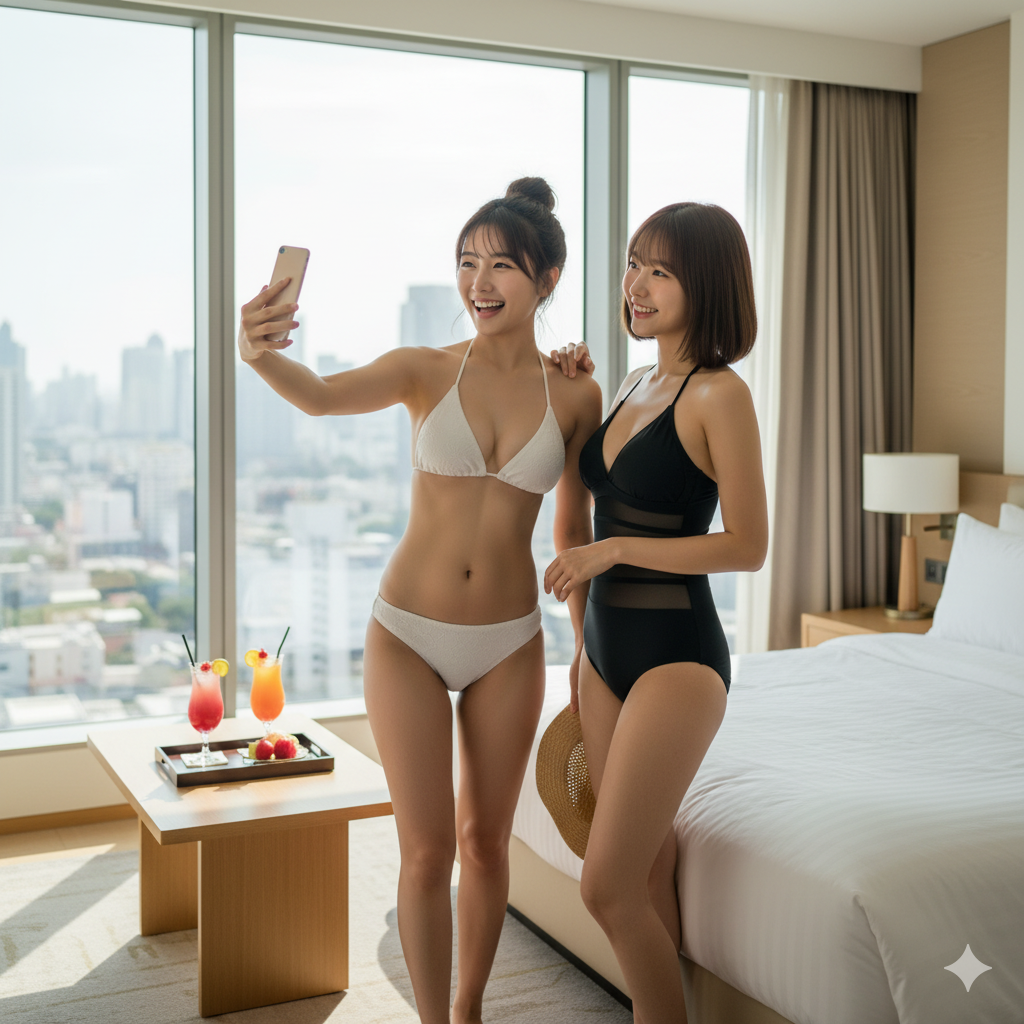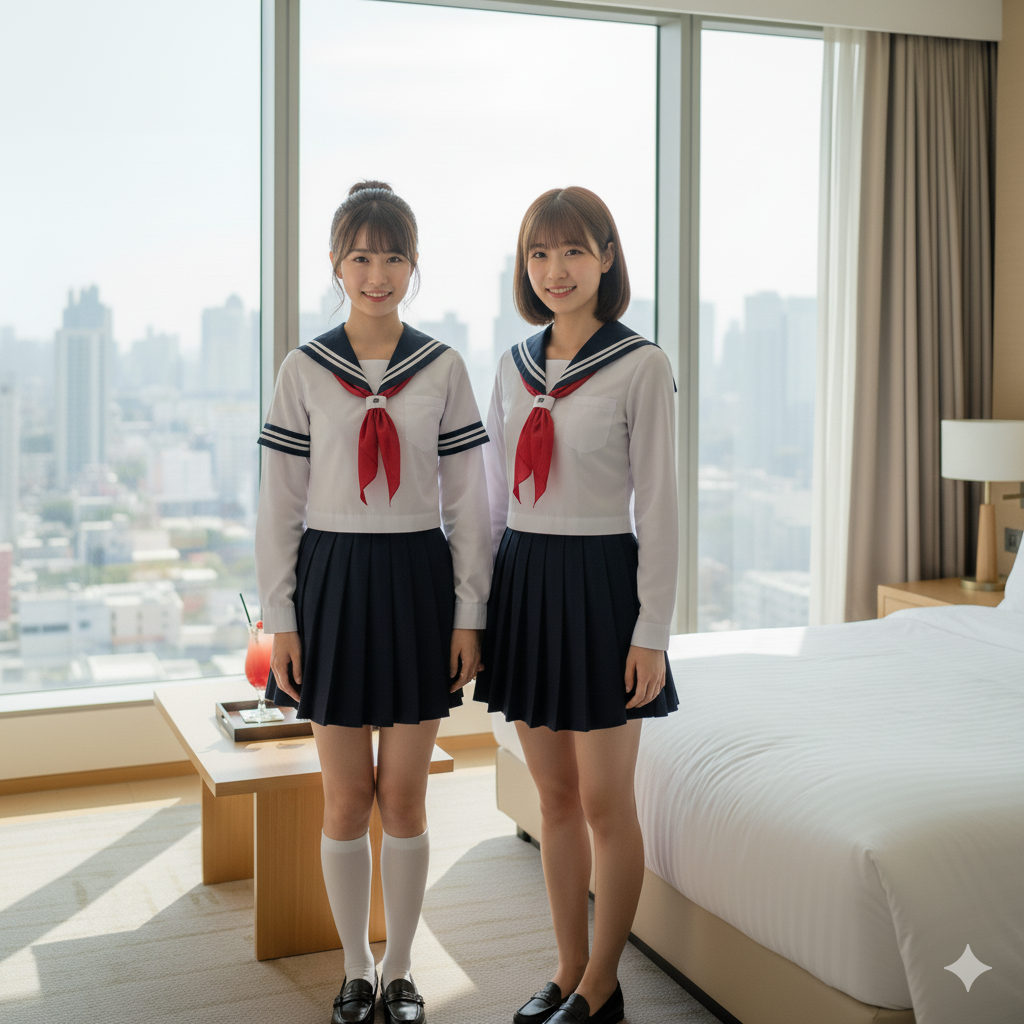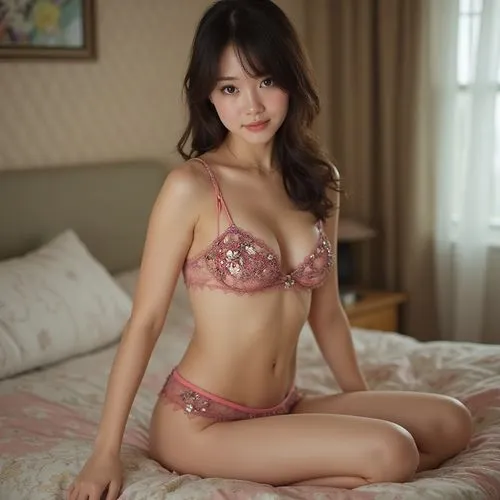
In Japan, exchanging money for sexual intercourse with an unspecified partner is prohibited under the Anti-Prostitution Act. Businesses that provide non-intercourse erotic services operate under the Adult Entertainment Business Act (commonly “Fuei Act”) with permits and zoning rules. Travelers commonly use regulated venues (e.g., Soapland, Pink Salon, Delivery Health) that follow these rules; understanding formats, prices, and etiquette makes visits smoother.
How modern venue types work (space, service, and “staged intimacy”)
In modern Japanese nightlife, erotic entertainment is organized around specific venue types. A Pinsaro (Pink Salon) is typically a compact, softly lit lounge or booth-style venue near stations; sessions are short, with drinks, very close seated interaction, and standardized oral contact (oral sex) framed as a brief performance. A Soapland provides a private bathing room; bathing rituals, body washing, and close body-to-body contact are presented as a structured, time-based format of intimacy. Image Clubs (costume/roleplay) emphasize outfits and scenarios with controlled touching; Sexy Cabaret (Sekukyaba) is a lounge with cuddling/close seating and light stimulation in a social setting; Delivery Health (out-call) dispatches a worker to a hotel room for non-intercourse services. Users are mainly urban adults in their 20s–50s plus inbound visitors; daytime “short stays” and late-night “long sessions” both exist. Since the 2020s, multilingual booking and inbound support have increased. Culturally, these venues embody “performed contact” and institutionalized intimacy, tightly linked to the structure of Japan’s urban night.
1. What exactly is illegal in Japan?

Short answer: Paying for sexual intercourse (coitus) with an unspecified partner is prohibited by the Anti-Prostitution Act. The law mainly penalizes brothel-keeping, solicitation, arranging, or profiting from prostitution. Many surrounding adult services remain lawful when they avoid sexual intercourse and follow separate business regulations. :contentReference[oaicite:1]{index=1}
Legal definition you should know
Under the Anti-Prostitution Act, “prostitution” means intercourse with an unspecified person for compensation; statutes focus on prohibiting inducement, contracting, profiting, or operating places for prostitution (e.g., organization, coercion, receiving consideration). The law’s structure explains why many venues standardize intimate acts other than intercourse. :contentReference[oaicite:2]{index=2}
So is prostitution “legal” or “illegal”?
Practically: intercourse for money is prohibited; the person is typically not criminalized for the act itself, but organizers and facilitators are. This legal design shifted urban intimacy toward regulated, non-intercourse formats (see section 2). :contentReference[oaicite:3]{index=3}
Key takeaway for visitors
Expect licensed venues to clarify that sexual intercourse is not included. Advertising, staffing, and rooms are designed around that boundary, with compliance checks by local Public Safety Commissions (police). :contentReference[oaicite:4]{index=4}
2. How do licensed venues legally operate?

Short answer: Adult venues are regulated under the Adult Entertainment Business Act (風営適正化法). Categories include Soapland, Fashion Health, Delivery Health, and others. Each has permits/notifications, age limits, hours, zoning, and interior rules. :contentReference[oaicite:5]{index=5}
Business categories (who is who)
The Metropolitan Police list each category: 店舗型 (on-site) such as Soapland and “Fashion Health,” 無店舗型 such as Delivery Health (派遣型), and other specialized formats. Read the official outline here: Tokyo Metropolitan Police — Industry list. :contentReference[oaicite:6]{index=6}
Zoning and hours
Locations are restricted by local ordinances (e.g., commercial zones, buffers from schools/hospitals). Example: Tokyo has specific rules implemented via Police Committee regulations. See: Tokyo Public Safety Commission Rules (PDF). :contentReference[oaicite:7]{index=7}
Why venues emphasize “no intercourse”
Because “prostitution” in law means intercourse, lawful venues shape services and scripts to remain outside that definition while complying with the Fuei Act (permits, reporting, interiors, staffing, entry bans for minors). See official act outline (NPA, PDF) and translation resource: NPA overview and JL Translation (Fuei Act). :contentReference[oaicite:8]{index=8}
3. Where can visitors go? Access, neighborhoods, and prices
Short answer: Tokyo’s common areas include Kabukicho (lounges, pink salons, clubs) and Yoshiwara (Soapland district). Prices vary by format and time. Always check the venue’s official “System/Price” page before visiting. :contentReference[oaicite:9]{index=9}
Typical areas and how they function
Kabukicho (Shinjuku) concentrates lounges/cabarets and pink salons under Fuei permits—see the police’s category list for what requires permission or notification: MPD — Adult Business procedures. :contentReference[oaicite:10]{index=10}
Yoshiwara (Taito) is known for Soapland; check each shop’s official site for fees and system. Example price pages: Happiness Tokyo, SKY. :contentReference[oaicite:11]{index=11}
Sample prices from official pages (as reference)
| Venue type | Example official source | Typical session | Price snapshot |
|---|---|---|---|
| Soapland (Yoshiwara) | Happiness Tokyo (official) | 60–120 min private room + bathing ritual | Commonly ¥20,000–¥50,000+, varies by rank/length (confirm on site) |
| Pink Salon / Lounge | Kabukicho SLOW (official) | 25–80 min lounge seating, close interaction | Example set: 25 min ¥5,000; service fee/tax apply—see price table |
| Soapland (Yoshiwara) | SKY (official) | Private room + bathing ritual | Rates posted on “System/Price” pages; check schedule and rank |
Conclusion → numbers → source links are provided above; always check the official “System” page on the day of your visit for final prices and fees. :contentReference[oaicite:12]{index=12}
Related internal guides: Tokyo Red Light District Guide / Yoshiwara Soapland Guide / Kabukicho Nightlife Basics
4. How to book: step-by-step and phrases

Short answer: Check the venue’s “System” page, call or message to reserve, confirm time/fees, and arrive with ID and cash/card. Delivery Health requires a hotel room and an address for dispatch. These flows exist because they match Fuei Act categories and local rules. :contentReference[oaicite:13]{index=13}
Step-by-step (common flow)
- Browse the official site: look for “System/Price/Access.” Example: Happiness Tokyo. :contentReference[oaicite:14]{index=14}
- Call (often Japanese). Some shops have basic English. If not, use our booking support below.
- Confirm: session length, total price incl. tax/service, and any membership/ID requirements.
- Arrival: reception desk → payment → room/lobby. Intercourse is not provided in lawful formats.
Key Japanese phrases
- “Yoyaku onegai shimasu.” (I’d like to make a reservation.)
- “Ryōkin wa ikura desu ka?” (How much is the fee?)
- “Eigo wa daijōbu desu ka?” (Do you have English support?)
- “Shimei arimasu.” (I’d like to nominate a specific staff.)
Why Delivery Health asks for your hotel
It is a dispatch-type service (無店舗型 性風俗関連特殊営業) that operates by sending staff to a residence/hotel—this is exactly how the category is defined by police guidance. See category list. :contentReference[oaicite:15]{index=15}
More booking help: How to Book in Japan / Useful Phrases / Delivery Health Guide
5. Etiquette and what to expect inside

Short answer: Venues are punctual, scripted, and hygienic. Follow staff guidance; do not negotiate for intercourse; keep phones away; tip modestly (if allowed). These norms arise from permits, inspections, and the legal boundary around intercourse. :contentReference[oaicite:16]{index=16}
Entrance to exit: the “script”
Reception (ID/payment) → orientation → session in a private space or lounge → closing prompt → settlement. Timers and room layouts reflect compliance requirements (e.g., interiors, visibility, partitions) under the Fuei framework. Fuei Act (translation). :contentReference[oaicite:17]{index=17}
What is typically offered (institutionalized contact)
- Pinsaro: short, close-range service with oral contact in booths.
- Soapland: bathing, body-washing, and close body contact in a private room.
- Image Club: costume roleplay with controlled touching.
- Sekukyaba: seated cuddling/teasing in a social lounge.
- Delivery Health: dispatch to hotel, non-intercourse services.
Payment, extras, and receipts
Official sites show the full “system” (set minutes, tax/service, nominations). Example: SLOW price table. Always confirm totals before the session. :contentReference[oaicite:18]{index=18}
6. Quick comparisons by venue type (with price examples)

Short answer: Choose the venue by space and script. Soapland = private bathing ritual; Pinsaro = short booth service with oral contact; Sekukyaba = lounge seating; Delivery Health = out-call to your hotel. Prices vary by rank/time; check the shop’s official page on the day. :contentReference[oaicite:19]{index=19}
Side-by-side: format vs. experience
| Format | Space | Service structure | Typical price signal | Official example |
|---|---|---|---|---|
| Soapland | Private bath + room | Bathing ritual, body-to-body, no intercourse | ¥20k–¥50k+ (length/rank) | Happiness Tokyo (Yoshiwara) |
| Pinsaro | Booth/lounge near stations | Short session, close seating + oral contact | ¥5k–¥15k+ (short sets) | Kabukicho SLOW (price page) |
| Delivery Health | Hotel room (dispatch) | Out-call, non-intercourse; address and ID needed | ¥15k–¥35k+, transportation fees possible | MPD category definition |
Why these differences exist
Formats map to legal categories, zoning, and interior rules (e.g., private rooms vs. lounges; on-site vs. dispatch). That institutional structure shapes the “feel” of your visit. NPA overview (PDF). :contentReference[oaicite:20]{index=20}
Traveler tips
- Check the “System/Price” page the same day.
- Bring ID and cash; cards increasingly accepted.
- Be on time; sessions are clock-based.
- Respect boundaries; intercourse is not part of lawful services.
Summary and Next Steps
Bottom line: In Japan, prostitution (paid intercourse) is prohibited, but a wide ecosystem of regulated, non-intercourse venues exists under the Fuei Act. If you understand the categories, price systems, and etiquette, you can plan a safe and culturally informed experience. Always confirm details on each shop’s official page and follow staff instructions. :contentReference[oaicite:21]{index=21}
Why use SoapEmpire for your plans?
If you searched for is prostitution legal in japan because you want a clear, practical path to Japan’s adult nightlife, you probably discovered two things: the law is subtle, and the venue landscape is fragmented. Prices live on each shop’s “System” page, phone lines are often Japanese-only, and formats like Soapland, Pinsaro, Sekukyaba, and Delivery Health operate with different rules. Travelers and expats tell us the same pain points—uncertainty about what is included, how to reserve, and where English support exists.
SoapEmpire solves this with a traveler-first guide that maps the legal categories to real venues. We standardize the essentials—location, opening hours, price sets, nomination fees, accepted payment, and language notes—so you can compare options at a glance. Because we focus on concrete formats such as Soapland and Delivery Health, our listings explain what the venue actually does inside its legal category (no guesswork about what is and isn’t offered). Our team also checks access routes and common meeting points, so you know exactly where to go and what to say at reception.
For readers who want hands-on help, SoapEmpire provides a 24-hour, flat $10 booking support. Send us the store name, preferred time, and your name (nickname is fine). We confirm availability in Japanese, handle questions about ID, fees, and session length, and message you back with a simple confirmation. This service is particularly helpful for foreign travelers and expats who prefer text over phone calls and want a smooth arrival without language friction.
The benefit to you is confidence: you’ll choose an appropriate venue, understand the price before you arrive, and follow local etiquette that respects the legal boundary (no intercourse) while enjoying Japan’s unique, ritualized forms of intimacy. If you plan to explore multiple cities—Tokyo, Osaka, Nagoya, Fukuoka—our coverage keeps your planning consistent across regions.
Ready to move from research to a confirmed slot? For reservations or inquiries, please contact us via the inquiry form. We’ll translate your preferences into a confirmed visit—clearly, safely, and on your schedule.
If you’re interested in visiting any of these places, SoapEmpire offers a 24-hour booking support service for only $10.
Just send the store name, preferred time, and your name (nickname is fine) to: artistatakuma@icloud.com.
We’ll take care of your reservation quickly and smoothly.
FAQ
Is prostitution legal in Japan?
No. Paying for sexual intercourse with an unspecified partner is prohibited by the Anti-Prostitution Act. Adult venues operate lawfully by avoiding intercourse and following Fuei Act rules. See the law texts here: Anti-Prostitution Act and the police category list: MPD — Industry list. :contentReference[oaicite:22]{index=22}
Can foreigners use Soapland or Delivery Health?
Many venues accept foreign guests with a valid photo ID and clear communication. Some are Japanese-only by policy. Check each shop’s official page and call ahead—or use SoapEmpire’s booking support to confirm. Examples of official “System” pages: Happiness Tokyo, SKY. :contentReference[oaicite:23]{index=23}
How much does it cost?
It varies by format, length, and rank. As reference points: lounge-style sets in Kabukicho can start around ¥5,000 for short times (plus tax/service), while Soapland sessions often range from ~¥20,000 to ¥50,000+ depending on rank and duration. Always confirm on the official price page. Example: SLOW price table, Happiness Tokyo. :contentReference[oaicite:24]{index=24}
What are the main rules inside?
Follow staff guidance, be punctual, keep your phone away, and do not request intercourse. These norms reflect compliance with the Fuei Act and venue policies. See official outlines: NPA overview. :contentReference[oaicite:25]{index=25}